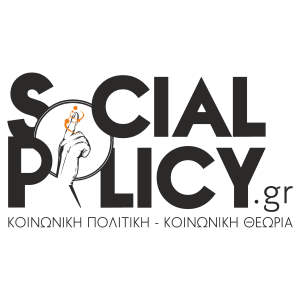Βραβείο 2021

Βραβείο 2022

Στρατηγικός συνεργάτης

Υποστηρικτές Επικοινωνίας


Open access article: (https://journals.sagepub.com/doi/full/10.1177/13623613231196084)
Abstract
Autistic individuals with intellectual disability are at greater risk of experiencing anxiety than their non-autistic peers without intellectual disability. Anxiety in this group may present as behaviour that challenges, often leading families to reach out to healthcare or support services. However, many families experience difficulties accessing services and, due to the lack of research into evidence-based anxiety interventions for people with intellectual disability, may not receive individualised support once in a service. This study explored caregivers’ experiences of accessing services for autistic individuals with intellectual disability, and their considerations when developing new interventions for this population. Interviews and focus groups were completed with 16 caregivers of autistic people with intellectual disability. Reflexive thematic analysis was used to develop five themes about service access experiences, and three themes about caregiver considerations for anxiety interventions. Caregivers reported that their experiences of accessing services did not meet their expectations, and considerations for future anxiety interventions were often reflective of this. Interventions being flexible to family circumstances to aid accessibility, the embedding of peer support in services, and skills that can be generalised across the lifespan could be applied when aiming to improve outcomes and develop interventions for this under-served population.
Citation: Hughes, J., Roberts, R., Tarver, J., Warters-Louth, C., Zhang, B.,
Southward, E., Shaw, R., Edwards, G., Waite, J., & Pearson, E. (2024). ‘It wasn’t
the strategies on their own’: Exploring caregivers’ experiences of accessing
services in the development of interventions for autistic people with intellectual
disability. Autism, 28(5), 1231-1244. https://doi.org/10.1177/13623613231196084
Open access article: (https://journals.sagepub.com/doi/full/10.1177/13623613211028000)
Abstract
Despite the high prevalence of co-occurring autism spectrum disorders and mental health condition(s), there exist substantial barriers to mental health treatment for autistic individuals. These barriers are exacerbated by a lack of mental health provider training and self-efficacy in providing adapted services to autistic individuals. One method which has been effective in mitigating similar service gaps is the Extension for Community Healthcare Outcomes (Project ECHO) Autism model, a tele-mentoring platform that connects primary care physicians to autism spectrum disorder experts to improve physicians’ knowledge, self-efficacy, and practice. This study developed and implemented a pilot mental health version of Project ECHO Autism designed to increase mental health provider knowledge, self-efficacy, and problem-solving. Community mental health providers (N = 51) participated in the 6-month Project ECHO Autism including mental health–focused didactics and provider case presentations. Analysis of pre- and post-measures revealed improvements in all domains, including significant increases in provider knowledge of autism spectrum disorders, self-efficacy, and problem-solving. Participants additionally reported high satisfaction with their experience. Taken together, preliminary results indicate that Project ECHO Autism may be a feasible, accessible, and effective method for increasing mental health provider competence and ultimately increasing access to services for autistic individuals who have co-occurring mental health diagnoses.
Citation: Dreiling, N. G., Cook, M. L., Lamarche, E., & Klinger, L. G. (2022). Mental
health Project ECHO Autism: Increasing access to community mental health services
for autistic individuals. Autism, 26(2), 434-445.
https://www.ingentaconnect.com/content/wk/dbp/2022/00000043/00000006/art00002
Abstract
Objective:
The objective of this study was to identify factors associated with parent-reported problems
accessing needed mental health services (MHS) in youth with autism spectrum disorder and anxiety.
Methods:
This study is a secondary analysis using the National Survey of Children's Health 2016 to 2017 data
sets with multivariable logistic regression. Subjects are 6 to 17 year olds with parent-reported autism
spectrum disorder (ASD) and anxiety. Outcome is parent-reported challenge accessing needed
mental health treatment, dichotomized to not a problem versus problem. Covariates included
race/ethnicity, intellectual disability, insurance, medical home, poverty level, and parent education
level.
Results:
The sample included 568 youth with ASD and anxiety—78% male subjects, mean age 12.5 years, and
63% White, non-Hispanic. Fifty-three percent of youth with ASD and anxiety had parent-reported
problems accessing needed MHS. Lack of medical home (adjusted odds ratio [aOR] 5.97, 95%
confidence interval [CI] [2.72–13.09]) and coexisting intellectual disability (aOR 2.23, 95% CI
[1.08–4.60]) were significantly associated with problems accessing MHS. Reported family incomes at
0% to 99% and 100% to 199% of the federal poverty level as compared with family income at 400%
federal poverty level or above (aOR 0.32, 95% CI [0.11–0.94] and aOR 0.35, 95% CI [0.13–0.95],
respectively) was associated with decreased problems accessing MHS.
Conclusion:
In this nationally representative study, more than half of youth with ASD and anxiety had parent-
reported problems accessing needed MHS. Lack of a medical home, co-occurring intellectual
disability, and higher socioeconomic status (SES) are associated with problems accessing MHS.
Therefore, policies to support the medical home; increase mental health supports available for those
with ASD, anxiety, and coexisting intellectual disability; and support access for all SES levels may
increase mental health access.
Citation: Conrad C., Cerda N., Harstad E., (2022). Parent-Reported Problems Accessing Mental Health
Services Among a National Sample of Youth with Autism Spectrum Disorder and Anxiety. Journal of
Developmental & Behavioral Pediatrics, 43(6): 320-326.
https://journals.sagepub.com/doi/abs/10.1177/13623613221150569
Abstract
Many of the nearly six million autistic adolescents and adults in the United States require support to navigate daily life. Family members often provide the first line of support for autistic youth by providing care and coordinating services. Although considerable research has examined the perspectives of family members caring for young autistic children, comparatively less has focused on those caring for transition-age youth who often struggle to access needed services as they leave child-serving systems of care. This study examined caregiver-reported barriers to service for 174 adolescents and young adults on the spectrum (ages 16–30) and the association between such barriers and unmet service needs. Exploratory factor analysis suggested two service barrier domains: access (e.g., cost) and quality (e.g., providers not trained). Regression models indicated that caregivers whose youth were diagnosed at older ages perceived both greater access and quality barriers. Male caregivers reported fewer access barriers, and those who perceived greater caregiver burdens (daily life disruptions, financial difficulties, and worries) reported more access barriers. Caregivers whose youth lived with them reported fewer quality barriers. Greater access–but not quality–service barriers predicted greater unmet service needs. Findings have implications for service delivery to autistic youth and specific directions for future research.
Citation: Ishler, K. J., Berg, K. A., Olgac, T., Obeid, R., & Biegel, D. E. (2023). Barriers to service and
unmet need among autistic adolescents and young adults. Autism, 27(7), 1997-2010.
https://doi.org/10.1177/13623613221150569
Open access article: https://link.springer.com/article/10.1007/s11920-020-1136-7
Abstract
Purpose of Review: We review original research about services for adults on the autism spectrum published from January 2013 through December 2018. The main aim is to characterize the topical and methodological aspects of research about services. We review research on services related to employment, living in the community, and social participation. We compare our results with those from a similar review published in 2012 to assess progress and identify where new directions in research about services for adults with autism are needed.
Recent Findings We found the evidence base about services for adults on the autism spectrum remains very small and highly variable in aims and methods. There is wide variability in methods used to define sampling frames and recruit participants. Most studies focus on employment. Almost no studies examine the overall ecosystem of services serving autistic adults. Few studies use a conceptual framework for understanding access to, or improvement of, services.
Summary The small size of the extant research coupled with inconsistent quality prevents the accumulation of new knowledge in ways that would significantly inform the improvement of systems of care for the growing population of adults on the autism spectrum.
Citation: Shattuck, P.T., Garfield, T., Roux, A.M. et al. Services for Adults With Autism Spectrum Disorder: a Systems Perspective. Curr Psychiatry Rep 22, 13 (2020).